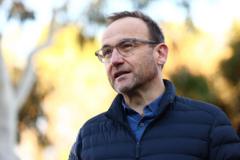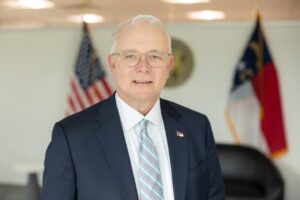With the looming presidential election on June 3, South Korea finds itself mired in political chaos, grappling with doubts surrounding its candidates and future leadership.
South Korea Faces Increasing Political Turmoil as Presidential Election Approaches

South Korea Faces Increasing Political Turmoil as Presidential Election Approaches
Amid constitutional crises, South Korea's political landscape is marked by uncertainty and instability with three acting presidents in five months.
South Korea has plunged into a profound political upheaval, witnessing a rapid succession of three acting presidents over the past five months. This tumult began when the previous president was impeached for abruptly imposing martial law, posing a challenge to the nation's democratic resilience.
As the impending presidential election slated for June 3 approaches, citizens and political analysts express anxiety about the electoral process and the candidates' legitimacy. The front-runner, Lee Jae-myung from the Democratic Party, is currently battling legal uncertainties over his eligibility to run, and concerns linger about his capacity to fulfill a presidential term if elected.
Adding to the complexity is Han Duck-soo, the recently resigned prime minister and acting president, who announced his candidacy in a bid to unify a sharply divided political landscape. However, the path ahead is fraught with obstacles, as he seeks backing from the People Power Party, which is contemplating its own selection for a candidate.
Effectively navigating this turbulent environment is crucial, given that Han had previously served as a close ally to the impeached former president, Yoon Suk Yeol, who is awaiting trial amidst serious legal allegations, including charges of insurrection. Even so, Han asserts his commitment to stabilize the governance and mitigate international trade tensions, specifically addressing what he describes as a "tariff bombardment" from U.S. President Trump.
In a press statement, Mr. Han expressed his determination to contribute positively to a tumultuous political future for South Korea, emphasizing, "I have decided to find what I can do for the future of my beloved country." As the election draws near, the question remains: can South Korea navigate this crisis and chart a path back to stable governance?
As the impending presidential election slated for June 3 approaches, citizens and political analysts express anxiety about the electoral process and the candidates' legitimacy. The front-runner, Lee Jae-myung from the Democratic Party, is currently battling legal uncertainties over his eligibility to run, and concerns linger about his capacity to fulfill a presidential term if elected.
Adding to the complexity is Han Duck-soo, the recently resigned prime minister and acting president, who announced his candidacy in a bid to unify a sharply divided political landscape. However, the path ahead is fraught with obstacles, as he seeks backing from the People Power Party, which is contemplating its own selection for a candidate.
Effectively navigating this turbulent environment is crucial, given that Han had previously served as a close ally to the impeached former president, Yoon Suk Yeol, who is awaiting trial amidst serious legal allegations, including charges of insurrection. Even so, Han asserts his commitment to stabilize the governance and mitigate international trade tensions, specifically addressing what he describes as a "tariff bombardment" from U.S. President Trump.
In a press statement, Mr. Han expressed his determination to contribute positively to a tumultuous political future for South Korea, emphasizing, "I have decided to find what I can do for the future of my beloved country." As the election draws near, the question remains: can South Korea navigate this crisis and chart a path back to stable governance?






















